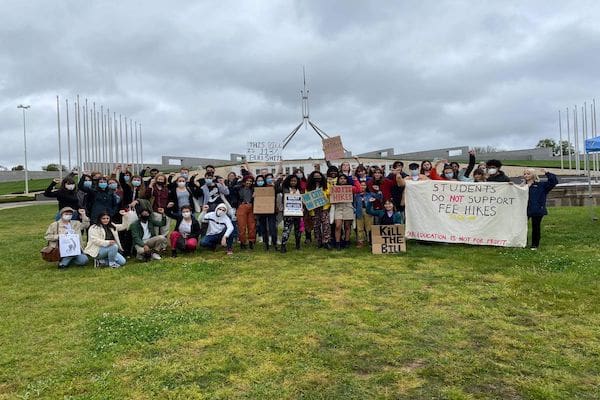The answer? Not much. Well, literally nothing, actually — universities weren’t mentioned once in Scott Morrison’s pre-election budget. The Morrison Government has seemingly termed it the “cost of living” budget, but there appears to be little recognition of how much living actually costs as a student.
In lieu of the ability to analyse any existing university-based policy announced in the budget, Honi has picked apart the most student-relevant aspects. In a move the Government likely assumed would have bought the votes of students, there is a $250 one-off payment for welfare recipients, including students who receive Centrelink payments. According to data from flatmates.com.au, the average price of a room in a shared house in Sydney is $289 per week. Youth allowance remains at about $265 per week. The payment further fails to support the many students who are ineligible for desperately-needed Centrelink payments, due to the age of independence being 22.
The Government’s choice to neglect truths around student poverty, especially as we emerge from COVID restrictions, is jarring. With many students returning to the city, the cost of living in the suburbs surrounding campus have skyrocketed; in 2019, Guardian figures suggested that close to half of Youth Allowance recipients spend more than half their income on rent. While new statistics aren’t available, there are economic settings which suggest this number has likely grown: youth allowance payments remain at $37.89 per day, which is definitively below the $59 poverty line, and the rise in cost of living across the areas of rent, healthcare, food and transport continues.
Throughout the budget statement, the Government clearly lacks the intention to gain the support of younger age groups, instead bolstering tax breaks and policy for mostly middle-aged, middle-income earners. This is further represented in its climate policy, or lack thereof. According to the Australian Climate Council, just 0.3% of total Government expenditure is committed to climate initiatives. This starkly contrasts with Labor’s “Powering Australia” policy, which commits to restoring the Climate Change Authority, and which Labor suggests will create 604,000 jobs and spur $76 billion of investment. In his Budget Reply speech, Anthony Albanese pledged to “end the climate wars”. Whether or not this will be enough to gain the votes of a generation plagued by climate anxiety remains to be seen.
Ultimately, the showing for students in budget week was measly at best. It will take strong lobbying and activism from student groups to ensure we are on the agenda this election.
Disclaimer: Roisin Murphy is a former member of the USyd branch of National Labor Students.





